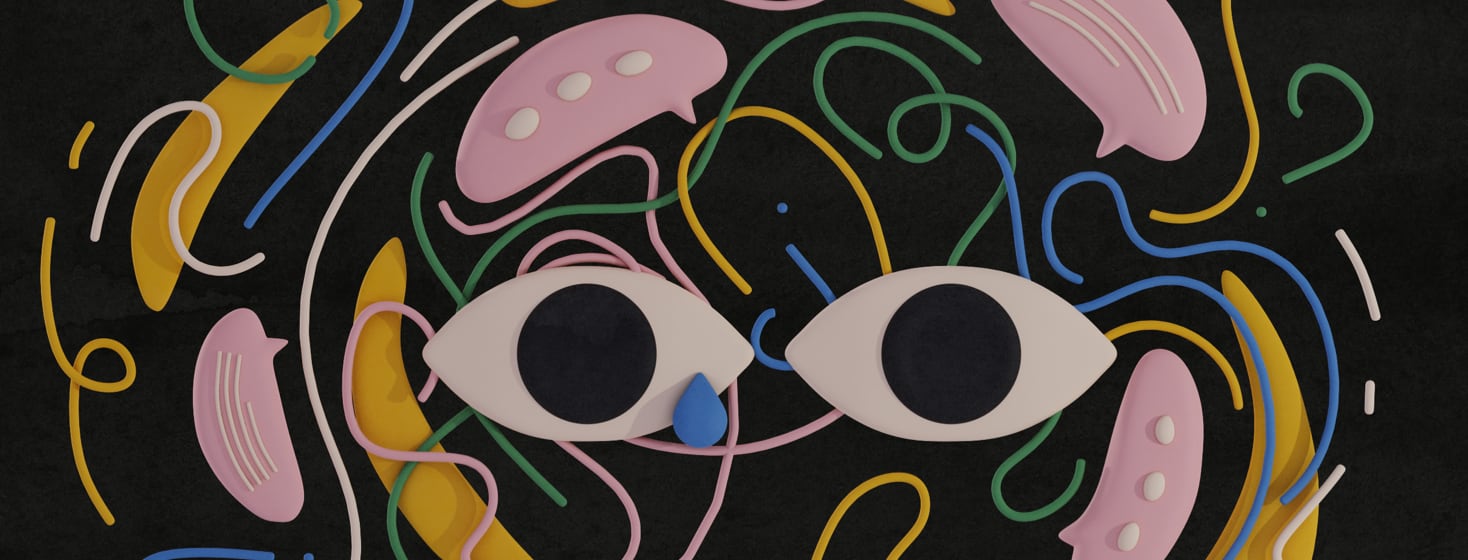Stress, Anxiety, and Epilepsy
Stress, anxiety, and epilepsy are quite related in my life. But maybe this is all new for someone who never thought anxiety could trigger epilepsy. Learning about triggers can be both frustrating and fascinating. Now you have to avoid that trigger too? Gosh, epilepsy, how many triggers do you have?!
Fear versus anxiety
For years, I mistook fear and anxiety as the same things – causing the same trembling hands. Then, a few years back, I stumbled upon the truth: They're as different as the sun and the moon.
Fear is how your physical body reacts to a certain situation in the current moment. For example, if there's a lion in front of you, you either run or freeze. (I would probably faint and might have an epilepsy attack on the spot, which is not good for survival). Anxiety is when we ruminate on past experiences and fear their recurrence in the present, causing distress and restlessness.1
Featured Forum
View all responsesStress and anxiety my epilepsy
I always have anxiety before going to bed due to past seizures in my sleep. As soon as my head hits the pillow, the mental checklist begins: Did I take my meds? Is the room temperature comfortable? Is my water bottle within reach? Was I too stressed today?
Intrusive thoughts about seizures flood my mind, triggering the familiar aura – a tingling sensation at the end of my right foot, followed by a rising wave of dread. Here we go again, trapped in the vicious cycle of anxiety fueling my epilepsy and the seizures fueling my anxiety.
Learning to manage my stress and anxiety to break the cycle
But I'm fighting back. I am actively learning to manage my stress and anxiety and break this cycle. When sleeping becomes difficult, I use a simple yet effective method that works for me. A short walk, recalling positive memories, and deliberate deep breathing techniques help me regain control and eventually drift off to sleep.
My epilepsy and stress have always been linked, but lately, the connection feels like a twisted knot. In November, I underwent surgery to control involuntary muscle movements called dystonia. The following day, my epilepsy began to flare up, the aura (warning sign) was stronger than ever.
The aura felt like a monstrous wave. Unlike typical seizures, I can sometimes feel and often suppress my epileptic episodes. Medication usually helps my body stay calm. But this time, my usual dose of anti-seizure medication, which I'd been taking for 10 years, felt useless against the intense aura. My body, it seemed, had grown immune.
Asking my neurologist for help
It moved into the end of December and I needed help. My anxiety was through the roof. My heartbeat was fast because I was thinking I would have a seizure for sure this time. I couldn't suppress it any more. In desperation, I contacted both my neurologists. One suggested a drastic increase in my medication. I gulped down the increased dose, counting down the agonizing 2 hours for it to take effect. Slowly, miraculously, the aura went away.
Sleep washed over me, heavy and welcome. Finally, relief. Sleep. Freedom from the tightening knot of anxiety. I could face tomorrow, and the days after, with a bit more normalcy.
My physical symptoms of anxiety
You might ask if I tried calming techniques during the time of anxiety. I did, like breathing exercises and gentle stretching. But in the grip of my epilepsy aura, my mind wouldn't settle.
My anxiety manifests in physical ways, like increased heart rate, digestive upset, and racing thoughts. This leads me to avoid situations or triggers that I know worsen my anxiety. My doctor's advice was the only things on my radar. I simply needed a way back to normalcy. But when I'm calmer and less stressed, I find solace in breathing exercises, gentle stretching, short walks, journaling, and even writing this article.
Managing my overall health and epilepsy
As I am still learning to manage my stress and anxiety, I am also focusing on eating healthy foods like vegetables, fruits, and nuts, as I know they contribute to overall well-being. Learning all this about healthy living can be challenging and take time, but it's a worthwhile investment.
Even if I never achieve perfect health, gaining more control over my body is a valuable accomplishment for me. This sense of control, no matter how small, empowers me to manage my epilepsy and anxiety, and that's what truly matters.
Is your stress and anxiety connected to epilepsy?
Do you experience stress and anxiety because of your epilepsy? Does your stress and anxiety worsen your seizures, or vice versa? What tools and coping mechanisms do you use to manage your stress related to epilepsy? Share your experience in the comments below. I'm eager to learn more!

Join the conversation